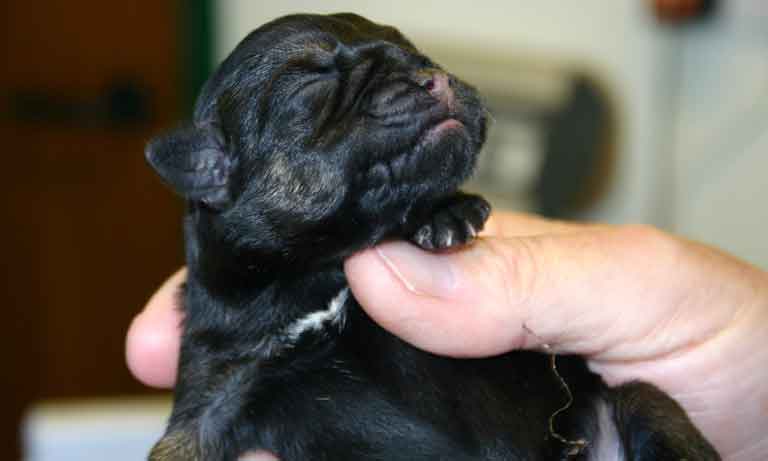New British Veterinary Association President calls for animal welfare alongside client choice to be at the heart of CMA recommendations
26 Sep 2024
BVA is urging vets to report unregulated canine fertility clinics to relevant authorities as it doubles down on calls for urgent regulation.

The move comes as BVA’s latest Voice of the Veterinary Profession survey reveals that more than 9 in 10 (93%) vets are either ‘very’ or ‘quite’ concerned about the boom in unregulated canine fertility clinics. Worryingly, among vets who work in companion animal practice, 30% said they were aware of such canine fertility clinics operating in their local area.
However, despite high levels of concern, most vets (78%) said they were not aware of the mechanisms for reporting such clinics. Among vets who were aware, less than one in twelve (8%) had reported any clinics, equating to just 2% of all vets.
“Our survey reflects the magnitude of our members’ concern around canine fertility clinics popping up across the country with no veterinary oversight and should serve as a wake-up call for urgent regulatory action.
“While non-surgical procedures can play an important role in breeding programmes, we are clear that they must always be carried out under the advice and care of a vet and in the interests of dog health and welfare.
“We know that many fertility clinics often focus on the most in-demand breeds such as French bulldogs, which can struggle to mate and whelp naturally. BVA is very concerned about artificial insemination being used in such cases, as well as in cases where dogs with inherited diseases and conformation-related issues are used for breeding. We are also aware of worrying reports that some fertility clinics are advertising prohibited or dangerous procedures such as surgical artificial insemination.”
Vets responding to BVA’s survey emphasised the need for stronger regulation of canine fertility clinics. Many vets also said that clinics should be inspected and given tough penalties if found to be operating outside the law. BVA is highlighting the following reporting details so that vets can help authorities take relevant enforcement action:
“I’d encourage vets to develop a practice protocol for reporting concerns of this nature and to make a note of the country-specific reporting mechanisms relevant to them. The more information the authorities have, the easier it is for them to take enforcement action. Working together we need to send a strong message that these animal welfare breaches are unacceptable.
“As veterinary professionals, we also need to work with, and support, our clients who are breeding responsibly and re-double our efforts to reach prospective puppy owners to help them make the right decisions when they choose a new pet.”
The recent spike in fertility clinics can be linked to the pandemic puppy boom and the demand for designer dog breeds. A Naturewatch Foundation report earlier this year uncovered evidence of at least 332 canine fertility clinics operating in the UK, a steep rise from the 37 known clinics found by a Vet Record investigation in 2020.
Canine fertility clinics offer a range of dog fertility and breeding services, from artificial insemination and ultrasound scanning to progesterone testing and semen extraction. While some non-invasive procedures can be carried out by unqualified people, all forms of artificial insemination and invasive acts involving intravenous blood sampling must only be carried out by a vet by law.
BVA is concerned that many canine fertility clinics are being run without a vet’s oversight, with unqualified people carrying out veterinary procedures. A BBC exposé last year also lifted the lid on some unregulated clinics offering courses on canine fertility to people with no veterinary or animal handling qualifications. The undercover footage showed illegal blood sampling, lay people advocating the unlicensed use of human medicines on dogs, and potentially illegal acts during artificial insemination.
“Figures from our latest survey are a stark reflection on our vets' concerns around the boom in canine fertility clinics across the country.
“It is no coincidence that their rise over the past few years can be linked to unscrupulous individuals cashing in on the huge demand for certain fashionable puppy breeds, like French bulldogs and other flat-faced breeds, who can struggle to mate or give birth naturally and can suffer from a range of health problems.
“Rather than listen to sound veterinary advice around responsible breeding, these individuals are taking matters into their own hands, fuelling a potential animal welfare disaster. Anyone looking to breed their dog should always speak to their vet first. That’s because unsuspecting owners and breeders may not be aware that many canine fertility clinics are being run by people offering veterinary services without any qualifications.
“Our advice would be to think carefully before engaging with a canine fertility clinic and to ask the right questions before using their services. This includes questions around the staff’s qualifications and training, how they are regulated, and about relevant health tests to make sure the dog is fit to breed in the first place.”
BVA is engaging with organisations including Dogs Trust, Naturewatch Foundation, Scottish SPCA and the Canine and Feline Sector Group to explore options for regulatory change. Naturewatch Foundation and the All-Party Parliamentary Dog Advisory Welfare Group (APDAWG) will be hosting a panel discussion on the issue at the House of Commons today from 7-9pm.
Get tailored news in your inbox and online, plus access to our journals, resources and support services, join the BVA.
Join Us Today